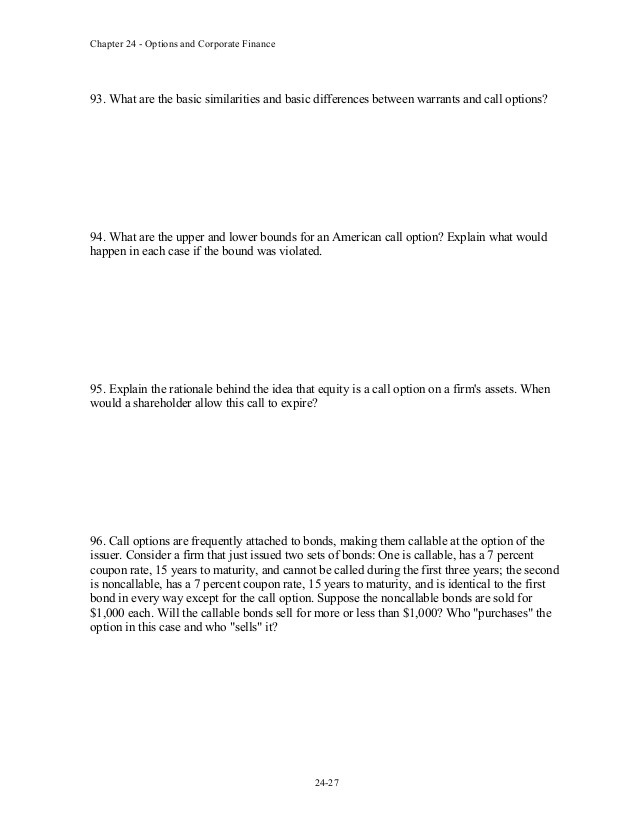What Is the Difference Between Warrants and Options
Post on: 8 Июнь, 2015 No Comment

What is the difference between warrants and options? Is there a difference?
Warrants and stock options are similar in that they are both contractual rights to buy stock of a company, at a price fixed in the contract, and for the period specified in the contract. However, warrants and options are typically thought of and referred to differently for a number of reasons.
The primary reason that they are thought of and referred to differently is that stock options are typically associated with compensatory services while warrants are typically associated with investment transactions.
For example. an employee or consultant would typically receive stock options. An investor in a convertible note and warrant round would typically receive warrants.
A compensatory options typically has a completely different contractual look and feel than an investment warrant. For example, a compensatory option is usually awarded under an equity incentive plan, and the option agreement is governed by the plan; the compensatory option will usually have vesting, and repurchase rights on termination of service. A warrant wont come granted under an equity incentive plan, and typically does not come with vesting.
In addition, the tax differences between a compensatory stock option and an investment warrant are dramatically different.
Questions and Answers
I am frequently asked the following question: Can a service provider receive a warrant in connection with the provision of services?
The short answer is yes, but it is important to keep in mind that a warrant received in connection with the performance of services will be taxed just like a compensatory stock option .
In other words, unless the warrant qualifies under the incentive stock option rules (which it likely would not) the following apply:
- to avoid adverse tax consequences under Section 409A. the warrant would generally must have an exercise price equal to the fair market value of the underlying stock on the date of grant; upon exercise, the excess of the fair market value of the shares received over the exercise price would be taxed as ordinary compensation income; if the recipient was an employee, upon exercise income and employment tax withholding would be required; and if the service provider was an independent contractor and not an employee, the income, although not subject to income and employment tax withholding, would probably have to be reported to the IRS on a Form 1099.
Taxes
A warrant is not taxed as described above if received in connection with an investment or a loan and not in connection with the provision of services. There is generally no tax owed as a result of the exercise of a non-compensatory warrant. However, depending on the circumstances in which the warrant is received, there can be tax owed before the warrant is exercised.
For example. a warrant issued in connection with a note will be considered to give rise to original issue discount. which is generally required to be taken into income over the term of the note. You should consult with a tax advisor about any warrants received in connection with an investment to determine the correct tax treatment.














